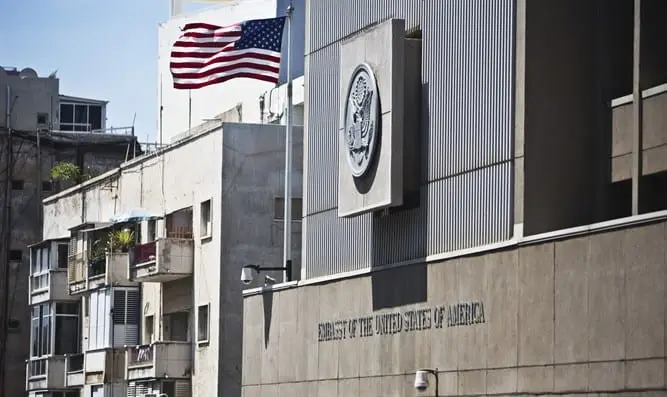Boko Haram founder’s son arrested in Chad as US applauds Nigeria on capture of Ansaru leaders
In a significant week for anti-terror efforts, security forces in Chad and Nigeria have dealt major blows to extremist groups operating in the Lake Chad Basin.
Authorities in Chad have confirmed the arrest of six suspected Boko Haram members, including Muslim Mohammed Yusuf, the son of the group’s late founder.
This news comes just after Nigeria announced the capture of two senior leaders from the Ansaru faction, an achievement that the United States has praised as a “significant forward step” in the fight against terrorism.
READ ALSO: Boko Haram raid kills 2 soldiers, forces others to flee to Cameroon
At the same time, the U.S. Mission in Nigeria has implemented stricter visa rules, requiring all Nigerian applicants to disclose their social media history from the past five years to enhance national security.
The arrest of Muslim Yusuf, also known as Abdrahman Mahamat Abdoulaye, was first reported by a Nigerian intelligence source in the Lake Chad region.
The source stated that Yusuf, believed to be around 18 years old, was apprehended with five other alleged militants in N’Djamena by Chadian authorities during a counter-terror sweep. Photos from the arrest showed a young man in a blue tracksuit who bears a striking resemblance to his father.
READ ALSO: Boko Haram abducts Borno LG secretary, Aide in broad daylight
Chadian police spokesman Paul Manga confirmed the arrests, describing the suspects as “bandits operating in the city” who lacked proper legal documents. While police identified them as Boko Haram members, Nigerian intelligence sources suggest that Yusuf’s cell is part of the Islamic State West Africa Province (ISWAP), a splinter group that separated from Boko Haram in 2016.
Yusuf was an infant when his father was killed in 2009 during a Nigerian military operation. He is also the younger brother of Habib Yusuf, the current leader of ISWAP.
A former Boko Haram member who has since renounced the group called the arrest a “major symbolic victory” against the insurgency.
In a related development, the Nigerian government recently announced the arrest of two notorious Ansaru commanders, Mahmud Muhammad Usman (aka Abu Bara’a) and Mahmud al-Nigeri (aka Mallam Mamuda). These men, who were wanted for their involvement in high-profile kidnappings and attacks, were captured in a security operation praised by both Nigeria and the United States.
READ ALSO: Military kills 10 Boko Haram terrorists in Lake Chad basin raid
The U.S. Embassy in Nigeria released a statement on X, formerly Twitter, applauding the arrests. “We commend the Nigerian Government and security forces on the successful arrest of wanted Ansaru leaders, Mahmud Muhammad Usman (aka Abu Bara’a) and Mahmud al-Nigeri (aka Mallam Mamuda).
This is a significant forward in Nigeria’s fight against terrorism and extremism.” The arrests are considered a major success against Ansaru, a group with ties to al-Qaeda that has been responsible for numerous kidnappings and attacks on Nigerian security forces.
Amid these counter-terror successes, the U.S. Mission in Nigeria rolled out its new visa directive. The Mission stated that all applicants must provide their social media usernames and handles from the past five years on the DS-160 visa application form.
“Omitting social media information could lead to visa denial and ineligibility for future visas,” the Mission warned, adding that the measure is part of new screening procedures to prevent extremists from exploiting loopholes in the immigration system.
Dr. Bashir Uji, a security expert, told News Point Nigeria that the twin arrests in Chad and Nigeria show the growing international cooperation against terrorism in West Africa. He added that while the arrests are a blow to the insurgent networks, the groups still have the ability to regroup and retaliate.
READ ALSO: Soldiers nab Chinese national linked to Boko Haram’s logistics supply
For many Nigerians, these developments offer a rare sense of relief. However, Washington’s new visa policy shows that the fight against extremism is not limited to the battlefield but also extends into digital spaces and global intelligence networks.
Follow the Neptune Prime channel on WhatsApp:
Do you have breaking news, interview request, opinion, suggestion, or want your event covered? Email us at neptuneprime2233@gmail.com





